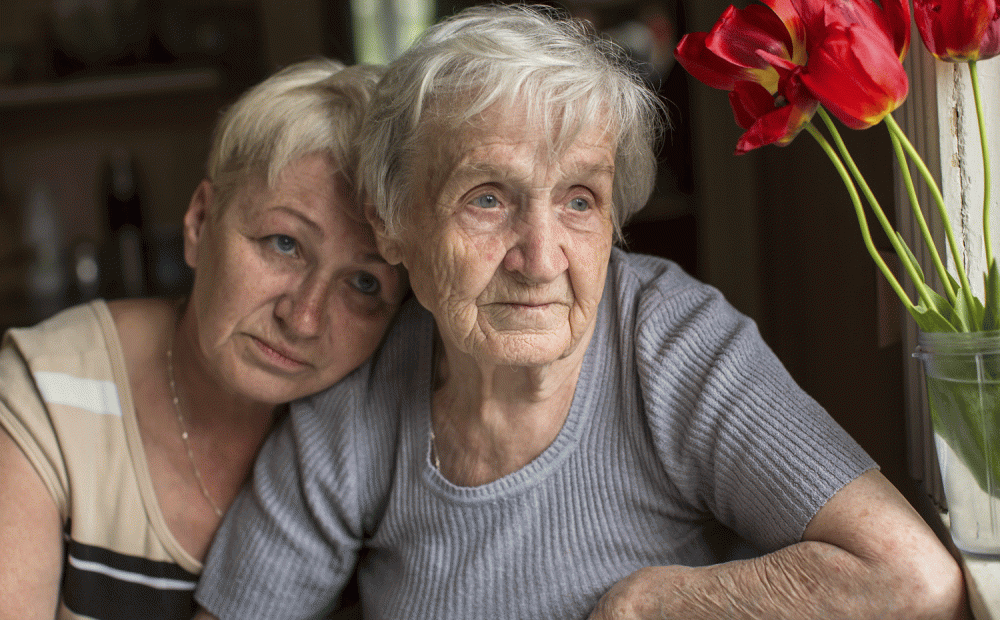Burden of Care: The Impact of Progressive Policies

The burden of care—the time, energy, and costs of caring for other people—is growing, and women shoulder the heaviest load. This burden can have negative consequences for businesses, too, as it affects the health and productivity of workers, as well as economic growth. At a recent Wilson Center Ground Truth Briefing, four leading experts discussed the ways in which progressive policies could help balance the burden of care to increase economic productivity and benefit both employers and employees.
Sarah Gammage, Director of Gender, Economic Empowerment, and Livelihoods, ICRW
Caretaking is “fundamental for the reproduction of the workforce,” said Gammage. “It enables children to develop the cognitive and emotional skills to become productive and peaceful adults and participate fully in economic, social, and political life. But it remains disproportionally feminized. Around the globe, women spend significantly more time on unpaid care work than men, including twice as much on housework and four times as much work on child care.”
“I think [social change] should be done within a framework of the right to care and be cared for, recognizing that we all have the right to care—and to be cared for—and that we will all need care at difference points of our lives,” said Gammage.
Kim Parker, Director of Social Trends Research, Pew Research Center
The Pew Research Center has found that the gender wage gap among millennials is almost non-existent, said Kim Parker, the director of social trends research at Pew Research Center. “I think millennial women were making 93 cents on the dollar that millennial men were making. So it’s a gap, but much smaller than you see for all women. But when we asked millennial women about their future in the workforce, the majority of them anticipated that when they started to have children and a family…there would be setbacks,” she said.
Pew’s research on paid family leave discovered that a lack of paid family leave has a disproportionate effect on low-income workers. “In the last two years, 62 percent of workers with incomes under $30,000 received no pay at all during that time off. And to compensate for the lost wages, 48 percent of them said they had to go on public assistance,” said Parker.
Jocelyn Ulrich, Senior Director of Global Policy and External Affairs, EMD Serono, Inc.
“According to the International Labor Organization, 865 million women around the globe, are not reaching their potential to contribute fully to the economy due to preventable causes—and a lot of those are related to health,” said Jocelyn Ulrich, EMD Serono’s Senior Director of Global Policy and External Affairs. “And when we think about the burden of care, there are very real health impacts that are resulting from this caregiving responsibility.”
Since 2015, EMD Serono has been the leading private sector partner in an initiative called Healthy Women, Healthy Economies, which produced a policy toolkit on how to make substantive differences in women’s health and economic empowerment. “We, at the company, have taken that mission internally as part of our core focus, particularly focused on this work-life integration piece, looking at the impact of caregiving on women, their health and economic empowerment, and looking to implement policies within the company,” said Ulrich.
Gwen Young, Director of the Global Women’s Leadership Initiative and Women in Public Service Project, Wilson Center
“In both the private sector and in the public sector, [if] you have more women around the table, you have more creative solutions, you have solutions that benefit the company, you have a bigger return on investment,” said Gwen Young, the director of the Wilson Center’s Global Women’s Leadership Initiative, which is seeking to ensure that 50 percent of government leadership positions are held by women by 2050.
Young women entering the work force should “take the business case that’s there…negotiate for that change within your company, within your family, within your school system,” said Young. “The evidence is out there, package it, and ask for it.”
Speakers

Moderator

Vice President, Sustainable Markets, Pact
Hosted By

Maternal Health Initiative
Housed within the Wilson Center's Environmental Change and Security Program, the Maternal Health Initiative (MHI) leads the Wilson Center’s work on maternal health, global health equity, and gender equality. Read more
